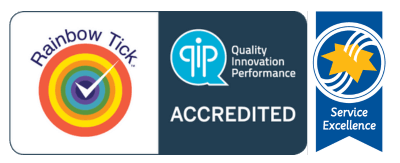Counselling: Talk things over
Counselling can help
Sometimes, we all just need someone outside of the situation to listen impartially and help us work through our feelings and thoughts to reach insight. Our counsellors do just that.
Our qualified and experienced counsellors listen impartially and without judgement and help you explore the situation you want to discuss. You guide the sessions, whilst our counsellors will provide focus and insight around coping strategies, loss and grief, relationship challenges, job stress from caring, and behaviour management.
We realise that caring means it is not always possible to prevent stressful situations. However, counselling can help you strengthen your ability to deal with the scenario with greater resilience and higher levels of wellbeing.
As an active carer, you are able to access six-sessions of counselling, and perhaps more if the situation requires you to.
We also provide counselling if your caring role has recently stopped, such as when your loved one may have moved into residential care or has perhaps passed away. In this case, counselling can support you to leave your caring role and think through where your life goes next.
Caring is challenging and rewarding. Caring will often prompt conflicting feelings, such as anger, anxiety, loss and grief, loneliness and depression, that are complicated and can feel overwhelming.
Family and friends can help to a point, but the power of talking to someone that is not emotionally involved is often very helpful. The strongest thing you can do is reach out for support. Call us to discuss further.
If you are are experiencing a personal crisis and need immediate support, you can call Lifeline on 13 11 14.
How does it work?
Counselling is easy to access. It is short-term, with usually six sessions that focus on challenges you identify in your caring role. The sessions can also focus on your health and wellbeing. Sessions can be each week or spread out or in any configuration that works for you.
Tasmania is the most regionalised state in the country, so we make counselling easy and flexible. You can attend face-to-face or speak over the phone or perhaps use video options (such as Skype or Zoom). This means no matter where you are, the option of counselling is open to you. If you choose, you can also include your partner or family members who are also carers in the sessions.
If you are from a culturally diverse background, some translation is available if English is not your first language. Please let us know. Or you can call the TIS National Interpreting Service directly on 131 450.
Make a time to book a session
If you think you or another carer would benefit from counselling, please get in touch.








